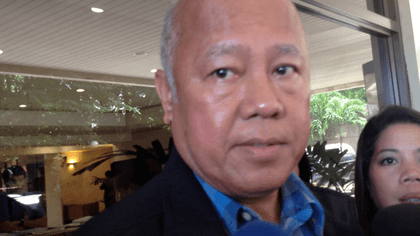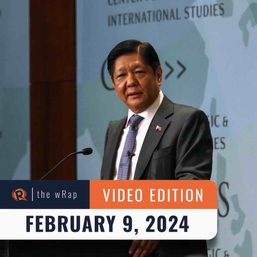SUMMARY
This is AI generated summarization, which may have errors. For context, always refer to the full article.
MANILA, Philippines – Anti-Money Laundering Council executive director Vicente Aquino said the impeachment trial of dismissed Chief Justice Renato Corona taught the council “a lot of good lessons.”
“We don’t have to be specific. It’s a learning curve also for all the government agencies concerned,” Aquino told reporters on Tuesday, June 5.
But what’s the biggest lesson?
“What I can say is there should be additional amendments to the AMLA (Anti-Money Laundering Act) to make it stronger. The foreign currency law should also be amended to increase the number of exemptions,” Aquino said. He did not elaborate.
However, various House bills were filed seeking to authorize the impeachment court, regular courts, and the Ombudsman “during exceptional circumstances” to examine foreign currency deposits.
Aquino attended Tuesday’s hearing of the House committee on banks and financial intermediaries on bills seeking to review the Foreign Currency Deposit Act (FCDA).
Ghost of #CoronaTrial
Under the FCDA, foreign currency deposits may not be examined without the express permission of the depositor.
This was a major issue raised in Corona’s trial. The prosecution insisted that the law does not apply to impeachable officials. But citing the FCDA, the Supreme Court intervened in the proceedings when it issued a temporary restraining order stopping Philippine Savings Bank president Pascual Garcia III from further testifying on Corona’s dollar accounts. The Senate chose to respect the SC’s TRO.
In a surprise development, Corona’s dollar accounts were later revealed through the investigation of the Office of the Ombudsman, which sought the assistance of the AMLC.
The Ombudsman used the waiver that Corona signed in his Statement of Assets, Liabilities, and Net Worth (SALN) allowing the Office of the Ombudsman to seek the assistance of government agencies to verify declarations of government officials.
Incomplete waiver

AMLC receives reports of all bank transactions amounting to P500,000. But AMLC’s records are incomplete because the council does not receive reports involving lesser amounts. This is why the Ombudsman was unable to determine the ending balances of Corona’s accounts.
Only the banks—which are commercial institutions—can provide information on the ending balances.
Corona did sign a waiver allowing government agencies to scrutinize his bank accounts, but he issued it at the 11th hour. Prosecutors dismissed it as a “gimmick.”
Comfortable reserves
Bangko Sentral ng Pilipinas (BSP) deputy general counsel Elmore Capule told lawmakers there’s “reason” to lift the confidentiality of foreign currency deposits, possibly through court processes. The FCDA, after all, was enacted in the 1970s when the country’s foreign currency reserves were low.
“Reserves now are at very high levels. We have comfortable foreign currency deposits now. If we relax, we do not believe that we can expect crisis,” Capule added.
When the discussion in the committee hearing touched on the implications of the bills on various existing laws such as the SALN law, committee chairman Rep Sergio Apostol formed a Technical Working Group to study the bills further.
“We need a technical working group to study the implications of these other laws which are now existing,” said Apostol.
Obviously referring to Corona, a lawmaker hinted that they should invite a resource speaker who can “enrich” their discussion.
But Apostol told the media he was against it. “Personally I do not want him. Gulo lang ‘yun. Why will he come here? He was convicted because of misdeclaration of SALN, which is the one now being talked about. So why invite him?,” he said.
Apostol said he agreed with the Ombudsman’s interpretation of the SALN waiver.
“It’s the law. That’s why you have to sign it…. We have no plans of amending or limiting the Ombudsman’s power. Unless the technical working group will take this up,” he said. – Rappler.com
Add a comment
How does this make you feel?















There are no comments yet. Add your comment to start the conversation.